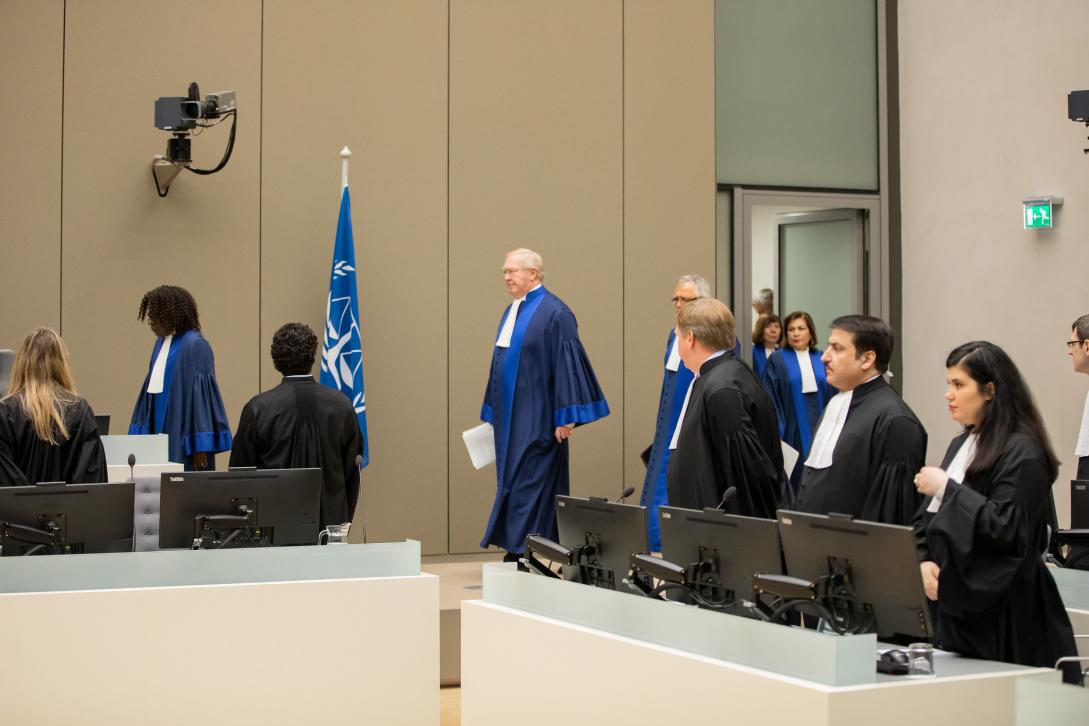20 years of international criminal justice against the most horrific crimes

During its 20 years of existence, the ICC has, among other achievements, sentenced individuals who were found guilty of sexual violence, illegal recruitment of child soldiers and destruction of cultural heritage. It has proved to be a key instrument in fighting against impunity, ensuring fair trials and providing justice to victims, and preventing and deterring future crimes. On the Day of International Criminal Justice, the European Union reaffirms its commitment to protect the judicial independence of the ICC and the integrity of the Rome Statute, while standing firm against any attempt to discredit the Court and obstruct its work.
“As the world’s first and only permanent international criminal court, the International Criminal Court plays a crucial role in a shared rules-based global order and in advancing the fight against impunity for international crimes. Despite this crucial role, its work and independence continue to be frequently challenged”, reads the Declaration issued by the HR/VP Josep Borrell on behalf of the EU to mark the date.
July 1 marked the 20th anniversary of the International Criminal Court (ICC). On this day in 2002, the Rome Statute of the International Criminal Court entered into force upon ratification by 60 States, officially creating the ICC. To date, 124 countries from all regions have ratified it.
Currently, the ICC is investigating abuses committed in 17 countries, in particular, Ukraine, Darfur and Libya. Ukraine was the latest situation to join the list, after the ICC Prosecutor announced on February 28 that he would open an investigation based on the Office's earlier conclusions arising from its preliminary examination. In early March, the Office received a joint referral from more than 40 countries referring to alleged crimes committed in Ukraine. The Office of the Prosecutor has established a dedicated portal through which anyone who may have information relevant to the Ukraine situation can contact ICC investigators.
20 years in figures
- 31 cases have been brought before the ICC, some of them involving more than one suspect.
- ICC judges have issued 37 arrest warrants.
- Thanks to cooperation from States, 21 people have been detained in the ICC detention centre and have appeared before the Court.
- 12 people remain at large. Charges have been dropped against 3 people due to their deaths. ICC judges have also issued 9 summonses to appear, 10 convictions and 4 acquittals.
Conference and exhibition to mark the ICC’s 20th anniversary
On 1 July, the ICC hosted a conference at the World Forum in The Hague (The Netherlands), entitled “The ICC at 20: Reflections on the past, present and future.” The event allowed for in-depth discussions on the different aspects of the Court’s concrete operations, from the earliest reports of alleged crimes to final judgments and the reparation of victims. It was also an occasion for reflections on the extent to which the ICC has met expectations, as well as on the main trends to be discerned for the further development of the international criminal justice system going forward.
Also on the 20th anniversary, the ICC launched, in collaboration with the Trust Fund for Victims and Fondation Carmignac, an exhibition on display at the UN Headquarters in New York from 27 June to 29 July 2022. After New York, it will be publicly exhibited in The Hague, Geneva, and several of the countries with situations under investigation, as part of the ongoing activities for the Court’s 20th anniversary.
The ICC exhibition, with selected photographs from the Court’s “Life after Conflict” series, comprises stories as told to ICC outreach by survivors of some of the world’s worst crimes. The photographs, by award-winning photographers Rena Effendi, Pete Muller and Finbarr O’Reilly, cover stories from five countries in which the ICC investigates, all at different stages of the ICC process. Photographs from the Democratic Republic of the Congo are the first ever public stories of ICC reparations beneficiaries, showing the full circle of the justice process from the start of investigations to the end of ICC cases, including reparations to victims.





